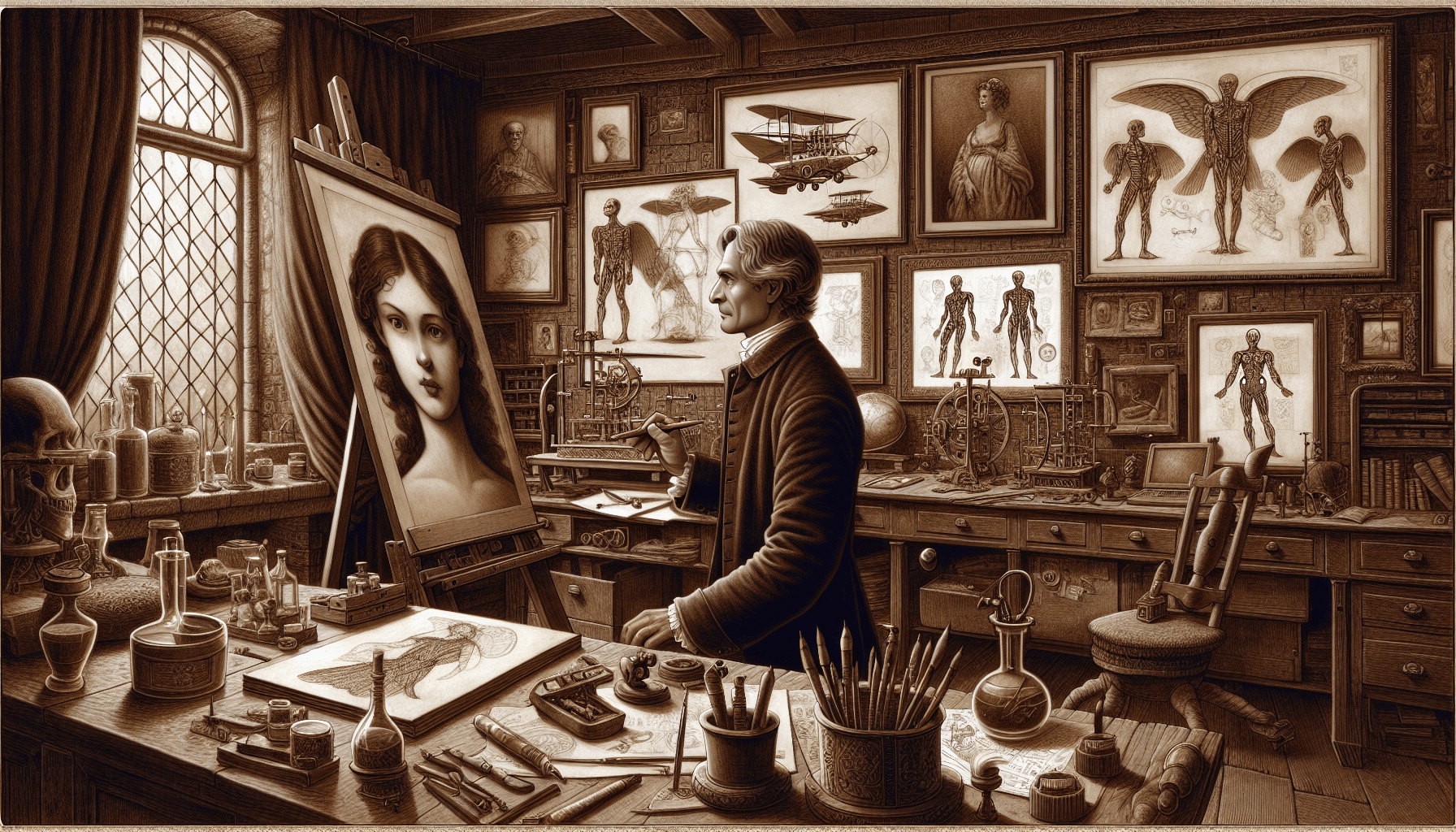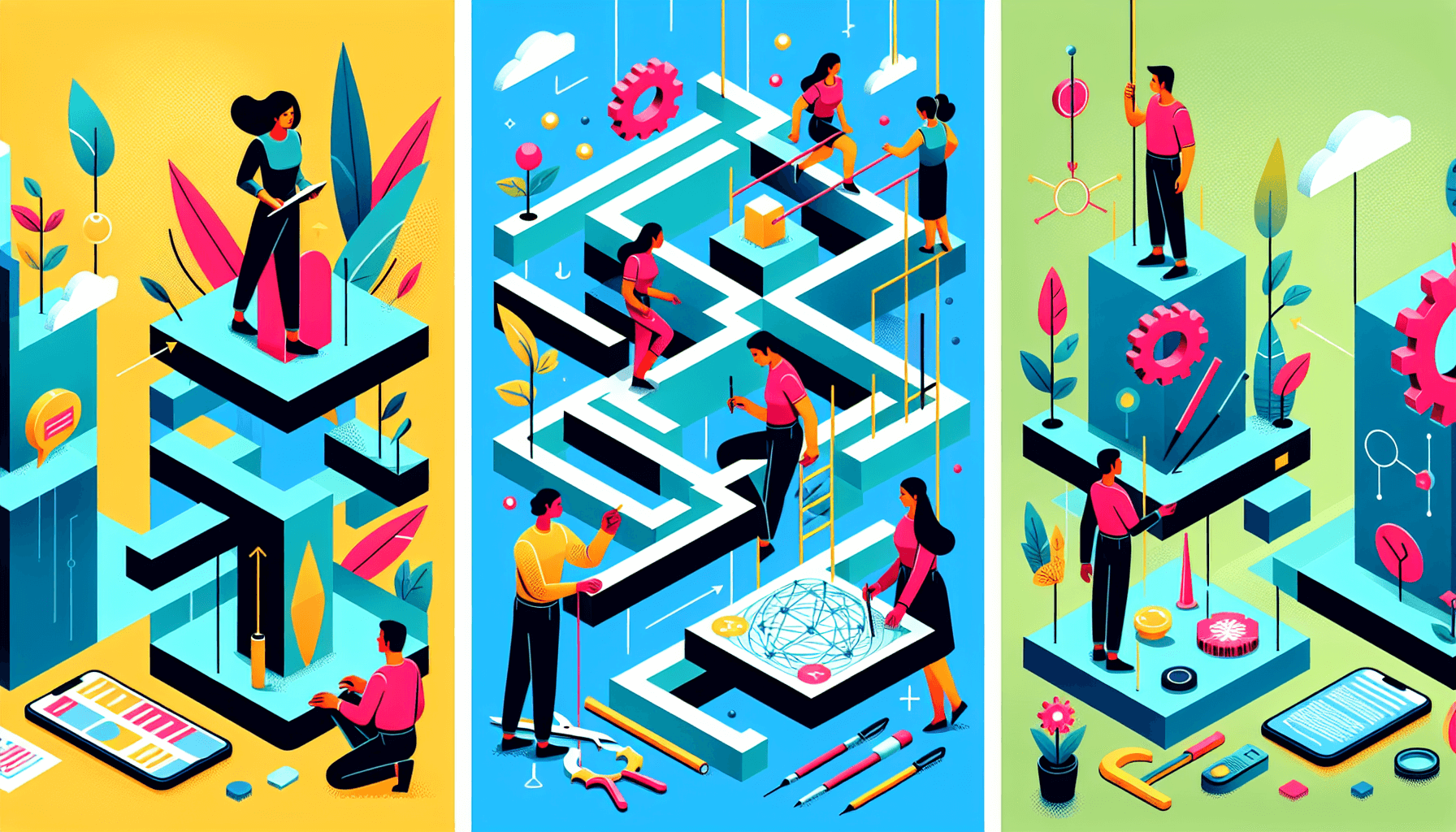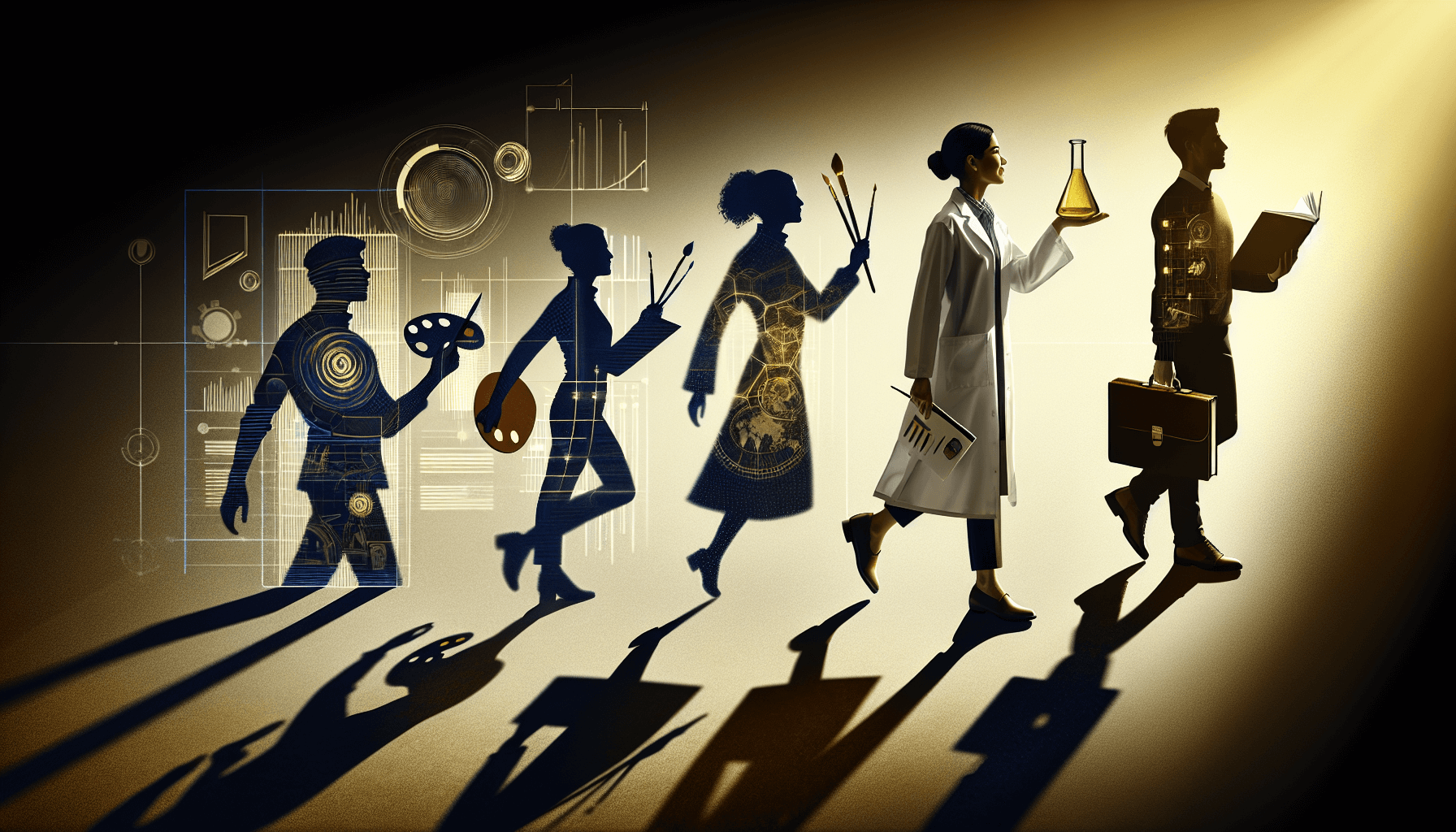The Generalist's Dilemma: Finding Your Path in a Specialized World

Ever felt like you’re pretty good at a bunch of things, but not quite the go-to expert for any single one? Welcome to the generalist’s club—we have cookies (that we probably baked ourselves while also learning pottery, coding, and ancient Greek philosophy).
Understanding the Generalist Approach
A generalist—or as we’re sometimes called, a jack-of-all-trades—is someone who develops competency across multiple disciplines. Think of it like being a human Swiss Army knife: you might not have the biggest blade, but you’ve got tools for almost any situation. Generalists often achieve above-average proficiency in various skills that may seem as unrelated as peanut butter and pickles (which, fun fact, was Elvis Presley’s favorite sandwich combination—proof that unexpected combinations can work!).
Rather than diving deep into a single field, generalists continuously expand their knowledge horizontally. We’re the people with browser tabs open on everything from quantum physics to sourdough starters, and somehow, it all makes sense in our minds.
The Specialist Paradigm: Masters of Their Domain
In contrast, specialists—the masters-of-one—are like Olympic athletes focusing on a single event. They’re the people who can tell you exactly why one type of coffee bean grown on a specific slope of a particular mountain in Ethiopia makes the perfect espresso.
This approach is particularly revered in cultures like Japan, where they have the concept of “Shokunin”—artisans who dedicate their entire lives to mastering a single craft. Think of a sushi master who spent over 75 years perfecting the art of sushi-making.
A Brief History of Generalists: From Renaissance to Present

The original poster child for generalists was Leonardo da Vinci—a man who was not only dropping masterpieces like the Mona Lisa but was also sketching flying machines while everyone else was still excited about the wheel. Fun fact: da Vinci wrote his notes backward, and they could only be read in a mirror. Talk about being extra!
But he wasn’t alone. Benjamin Franklin was another famous generalist who:
- Invented the lightning rod and bifocals
- Founded America’s first lending library
- Served as a diplomat
- Made significant contributions to population studies
- Created a musical instrument called the glass harmonica (which, admittedly, didn’t quite catch on like his electricity experiments)
However, as the Industrial Revolution kicked in, the world started to favor specialization. Assembly lines needed people who could do one thing perfectly rather than ten things well. This trend accelerated through the 20th century, leading to today’s job market where you might find listings asking for “5+ years experience in a framework that was released 3 years ago” (I wish I was joking about this one).
The Modern Generalist’s Challenge: A Personal Tale
Let me share a story that might sound familiar to fellow generalists. After my virtual graduation in 2020 (yes, I was part of the legendary Zoom graduation class), I had a conversation with a family friend—let’s call her Alice—at a local café.
The conversation went something like this:
Alice: “So, what’s your specialty?”
Me: nervous laughter while mentally scrolling through my random skill inventory “Well, I do design, worked as photograper and videographer during my study, and I majored in Computer Science…”
Alice: visible confusion “But what’s your THING?”
Me: internally wondering if ‘being interested in everything’ counts as a thing
This interaction highlighted a common challenge for generalists: we often struggle to answer the dreaded “What’s your specialty?” question at networking events. It’s like being asked to pick a favorite child when you love them all equally (though slightly differently).
When Generalists Shine: Our Time to Glow

Despite the challenges, there are several scenarios where generalists don’t just succeed—we thrive:
-
Handling Uncertainty
Remember how everyone panicked when offices went remote in 2020? Generalists were often the ones who could quickly adapt, setting up virtual workflows while simultaneously troubleshooting their colleague’s video calls and creating digital social events. And We’re basically the professional equivalent of improv actors: “Yes, and…” is our motto.
-
Building Foundations
When starting new projects or teams, generalists are like human duct tape (in the best possible way). Need someone to write documentation? Design a quick logo? Set up basic workflows? Create a project timeline? We’ve got you covered. Our adaptability is our superpower.
-
Zero-to-One Projects
Starting something from scratch requires a Renaissance-person approach. You will need to handle multiple things by yourself before it gets bigger, and you can add more people to work on some aspects that you prefer not to. While specialists might get stuck waiting for other experts to handle different aspects, generalists can keep the ball rolling across multiple fronts.
The Rise of the Modern Polymath
An interesting trend is emerging in today’s job market: the return of the polymath. Companies are increasingly valuing what’s called “cognitive flexibility”—the ability to adapt and learn across different domains. According to the World Economic Forum’s “Future of Jobs Report 2020”, some of the top skills for 2025 include:
- Complex problem-solving
- Critical thinking
- Creativity
- Active learning
- Cognitive flexibility
Notice how none of these are highly specialized technical skills? That’s where generalists have a natural advantage.
Finding Balance: The T-Shaped Professional
The future likely belongs to what experts call “T-shaped” professionals—people who combine broad knowledge (the horizontal bar of the T) with deep expertise in one or two areas (the vertical bar). Think of it as being a generalist who’s picked a favorite child, but still loves all the others.
This approach offers several benefits:
- The broad knowledge helps you connect dots others might miss
- The deep expertise gives you credibility in specific situations
- The combination makes you uniquely valuable in cross-functional teams
Practical Tips for Fellow Generalists

If you’re a generalist trying to navigate today’s job market, here are some strategies that have worked for me:
- Frame Your Versatility as a Strength
- Instead of apologizing for not having a singular focus, emphasize how your broad knowledge helps you adapt and innovate.
- Keep a “skill portfolio” of projects where your diverse knowledge created unique solutions.
- Find Your “Home Base”
- Choose one or two areas where you’ll maintain deeper expertise, while keeping your broad interests alive.
- Think of it as having a home base for your adventures, not a cage.
- Stay Current
- Use your natural curiosity to stay updated on trends across different fields.
- You never know when your knowledge of ancient Greek philosophy might help solve a modern UX design problem!
The Future Belongs to the Curious
In a world that’s increasingly interconnected and complex, the ability to synthesize knowledge from different domains is becoming more valuable. In his extensively researched book “Range: Why Generalists Triumph in a Specialized World” (2019), David Epstein presents compelling evidence that generalists are often better equipped to handle complex problems and innovations, particularly in fields where patterns are hard to predict.
Companies are starting to realize that while specialists are crucial for specific tasks, generalists are essential for:
- Innovation and creative problem-solving
- Cross-functional team leadership
- Adapting to rapid change
- Building bridges between specialized teams
Conclusion: Embrace Your Inner Renaissance Person
 Being a generalist in today’s specialized world is like being a multilingual person in a room full of people who each speak one language perfectly—you might not speak each language as fluently, but you can connect with everyone and facilitate communication between groups.
Being a generalist in today’s specialized world is like being a multilingual person in a room full of people who each speak one language perfectly—you might not speak each language as fluently, but you can connect with everyone and facilitate communication between groups.
The key isn’t to force yourself into a specialist mold or to avoid developing any deep expertise. Instead, embrace your natural curiosity while finding ways to apply your broad knowledge effectively. After all, in a world of increasing complexity and rapid change, the ability to adapt and synthesize different types of knowledge isn’t just useful—it’s essential.
Remember: Leonardo da Vinci didn’t become famous by choosing between art and engineering—he became immortal by showing how they could work together. So keep exploring, keep learning, and most importantly, keep connecting those dots that others might miss.
And the next time someone asks you what your “thing” is, just smile and say, “I’m a professional dot-connector.” Then watch their confusion turn to interest as you explain how your seemingly random skills helped you solve problems in ways nobody else could think of.
After all, in a world of specialists, sometimes the most valuable person is the one who can speak all their languages.
About the Author: This post is written from the perspective of a generalist who has navigated the modern professional landscape while developing skills across multiple disciplines. The personal anecdotes and observations are based on first-hand experience, while all factual claims are supported by the referenced sources.
.png)
